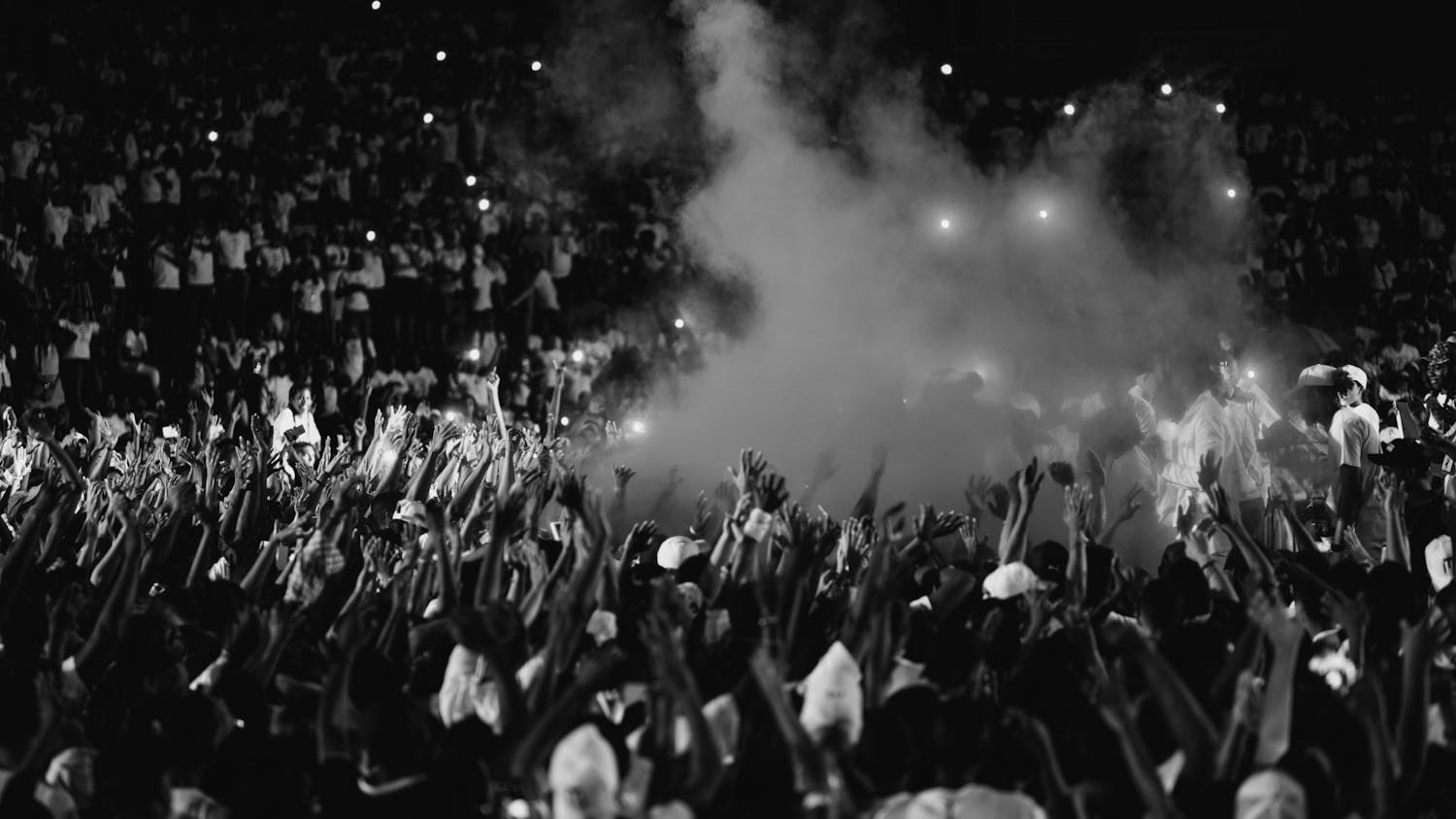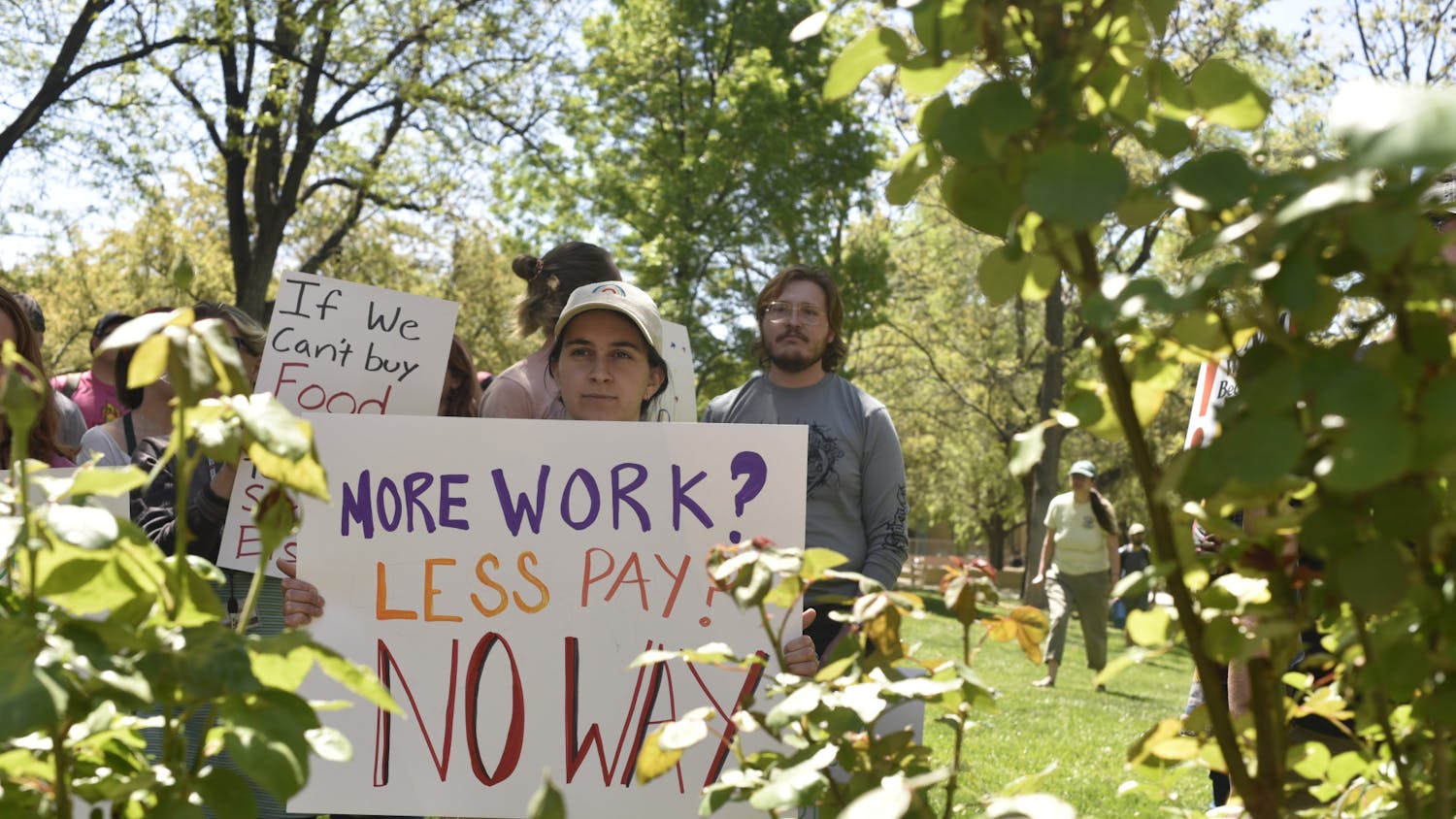Amid Department of Justice investigations into police departments across the nation for the use of aggressive force, an assistant professor in UNM’s School of Public Administration sought to discover the levels of inequality in municipal policing.
Agustin Leon-Moreta presented his findings last Friday as the last installment of a speaker series hosted by UNM’s School of Public Administration.
“Inequality in policing is a defining public policy challenge of our time,” Leon-Moreta said. “Recent events in Ferguson and other cities have raised the sense of urgency about policing programs of municipalities.”
The public has a “renewed interest in the performance of policing services in America,” he said, attributing the renewed interest to allegations of racial bias and service disparities in police departments across the nation.
“Whether to expand, maintain or scale back those policing levels are then decisions of enduring importance for municipalities seeking to adapt themselves to social polarization,” Leon-Moreta said.
To measure the level of police resources across American municipalities, he used the amount of police expenditures per capita.
Through his research, Leon-Moreta discovered that New Mexico has the 13 highest amount of police expenditure per capita.
Leon-Moreta then ran an analysis comparing the level of resources to an American Community Survey that recorded metropolitan disparities, income inequality as well as racial and ethnic heterogeneity.
Leon-Moreta controlled for population, median income, cost of living and the crime rate.
“Policing services vary widely across American municipalities, in terms of spending and staffing levels of those services,” he said. “Those different levels of policing seem to originate partly from differences in the social context of communities.”
Leon-Moreta said minority communities perceive the police as “rather distrustful and as a threat,” adding that racial heterogeneity increases a perceived “minority threat among white majority groups.”
“White majority groups favor increased policing efforts, as a strategy of social control over perceived minority threats,” he said.
Get content from The Daily Lobo delivered to your inbox
Leon-Moreta discovered that police expenditures increase with racial and ethnic heterogeneity, years of municipal incorporation as well as prevalent income inequality.
He said police expenditures increase with prevalent income inequality because “unequal municipalities can fund higher levels of policing through increased support for policing by affluent residents and greater resources from these residents.”
Leon-Moreta discovered that metropolitan disparities in the taxing capacity of the local government decrease police expenditures due to a smaller revenue stream generated through taxes.
These fiscal disparities arise from property taxes and socioeconomic conditions, he said.
Leon-Moreta said the solution for fixing inequalities is through the development of institutional capacity.
Institutional capacity is indicated by an increase in intergovernmental aide, inter-local cooperation and oversight of municipal policing, Leon-Moreta said, adding that mayors have the biggest role in shaping policy that resolves inequalities in municipal policing.
Leon-Moreta’s research indicates that “social and institutional mechanisms should be a part of policy analysis, if the intent of policy or administrative practices is to reshape programs of municipalities.”
Asmita Patel, a finance student at UNM, said she attended the presentation to understand how to present academic research. She praised Leon-Moreta’s work, saying it informed her about what causes the level of inequalities in policing.
Patel stressed the importance of conducting academic research, because she said it brings awareness to issues and inequalities.
“As a foreign student, I faced a lot of the problems, in regards to inequalities between people,” she said. “Education is important. If we have that knowledge, then we can work out and solve our problems.”
Andres Del Aguila is a news reporter at the Daily Lobo. He can be reached at news@dailylobo.com or on Twitter @Andres_DA95.





